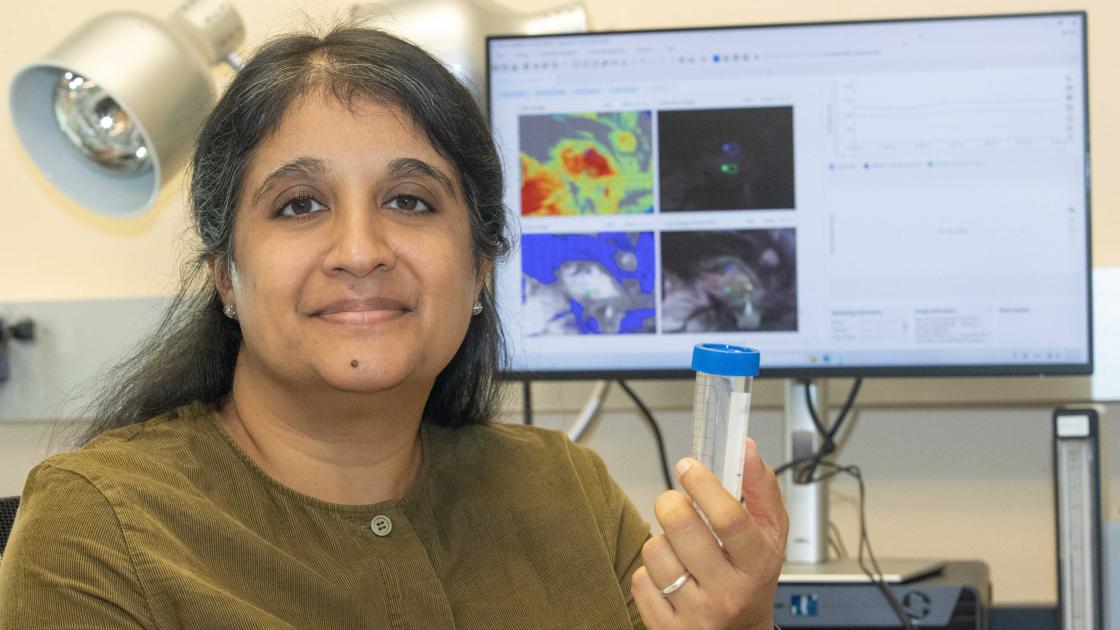
Building while battling headwinds
Don Torry and SIU's ascent in research
At first glance, the story of Dr. Don Torry’s career reads like a classic academic success: a small-town kid from Washington, Illinois, inspired by great teachers and a love of learning, rises through the ranks to become a leading researcher in reproductive immunology. But behind each achievement lies a deeper, more complex narrative—one of building amid crisis, of research advances forged under the weight of political and financial uncertainty.
As associate dean of research at Southern Illinois University School of Medicine, Torry’s leadership has helped guide the institution toward SIU’s recent designation as a Research 1 (R1) university, placing its flagship among the top 5% of research universities in the country. But that milestone didn’t come during a time of ease or abundance. It arrived as federal research funding faces steep cuts, and just years after a historic state budget impasse threatened to paralyze the institution entirely.
“Not long after I became department chair, we had the state budget impasse. That was monumental,” Torry recalls. “It was scary.”
He had been serving as interim associate dean during the search for a new research leader when Illinois’ budget crisis erupted. External candidates didn’t pan out, and hiring froze. SIU Medicine’s Dean Dr. Jerry Kruse approached Torry, asking him to consider applying for the role full-time. Though administrative leadership wasn’t exactly his aspiration, the timing—and the stakes—made the decision clear.
“As interim, I learned quickly just how much we do here—how much we contribute, even in hard times. It made me proud,” he says.
That pride stems from both personal and professional roots. Torry earned all three of his degrees from Southern Illinois University. Though he started out intending to become a high school science teacher, a chance seminar in graduate school sparked a passion for research that carried him through a postdoctoral fellowship at Harvard Medical and nearly a decade as faculty at the University of Tennessee. In 2000, he joined the SIU School of Medicine faculty, continuing a research path focused on the molecular underpinnings of pregnancy and preeclampsia.
Teaching remains in his core. Along the way, Torry developed a teaching style that adapts to a new generation of learners. “Students today want the information fast, but I still push them to connect the dots,” he says. “In immunology, it’s not about memorizing—it’s about reasoning.”
His research trajectory is mirrored in SIU’s broader evolution. When Torry arrived in Springfield, the research enterprise was strong but narrower. Over the next two decades, that base widened. The establishment of Simmons Cancer Institute expanded the university’s focus, and new faculty brought fresh energy and ideas. Programs in community-focused health research, funded by HRSA and other federal agencies, added depth and relevance.
“We’ve broadened our research perspective a lot,” Torry says. “And it’s not just basic science; it’s translational, it’s bedside, it’s community-facing.”
At the same time, SIU invested in infrastructure like the Center for Clinical Research, which Torry calls a “tremendous asset.” The institution also launched an umbrella graduate program across three campuses to recruit and train the next generation of biomedical scientists. “It gives students flexibility and lets them discover what they love,” he says. “It’s also highly multidisciplinary, which is the future of science.”
These efforts culminated in SIU’s elevation to R1 status in February 2025—a moment of validation for years of strategic growth. But the timing came with an ironic twist: Just as the university was recognized for research excellence, federal science budgets came under threat.
Between the end of February and the end of April, 700 federal research grants were cut, totaling $1.8 billion, according to a new study by the Journal of the American Medical Association.
“What the federal government is doing to research might top all the challenges we’ve faced,” Torry says. “The perception is that the U.S. is no longer welcoming to thinkers. That’s going to hurt us—not just now, but long-term. We’re likely to see students and scientists going elsewhere.”
For Torry, the emotional weight is personal. He has seen colleagues lose funding, labs close, and departments hollowed out. “As a scientist, you want to control variables. But in all these crises—the state impasse, COVID, the federal retrenchment—we’ve had so little control,” he says. “The uncertainty creates a lot of anxiety. And it takes a long time to recover.”
Still, he finds reasons to stay hopeful.
SIU’s Research Scholars program is preparing increasing numbers of medical students to be clinical investigators. Graduate student programs are energized by the umbrella program’s flexibility. And the institution is poised to expand its offerings in clinical trials, giving patients access to experimental treatments that might change lives.
“We’ve built something here that can weather the storm,” Torry says. “A success in a clinical trial might be easy to see, but behind that is a foundation of research that took decades to build. If we stay committed to that foundation, even now, we’ll be ready for, and will continue to lead, the next wave of discoveries.”
In the end, Torry’s story is more than a retrospective. It is a testament to what can be accomplished when institutions choose to build—not after the crisis has passed, but during it. It’s a reminder that progress often happens not in times of calm, but in the face of headwinds.
And at SIU, the winds may still be blowing, but the foundation is holding strong.



